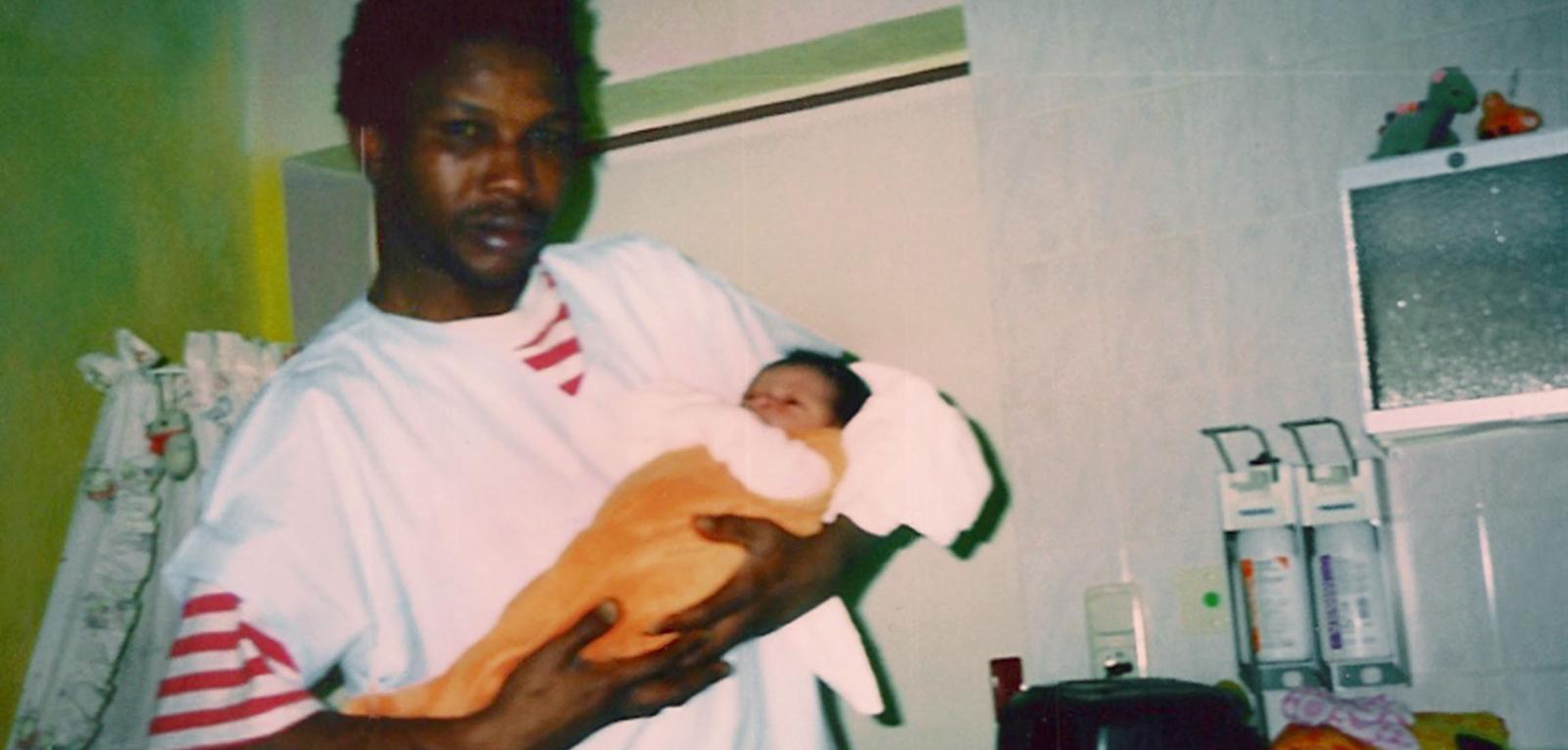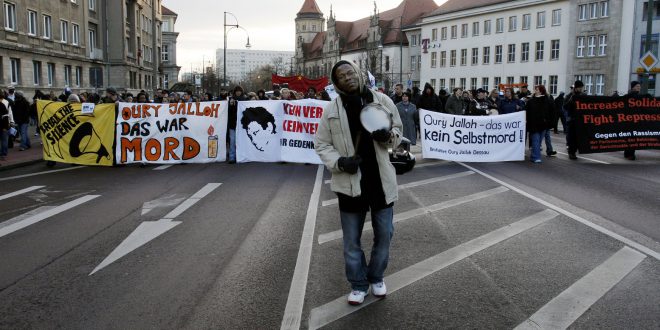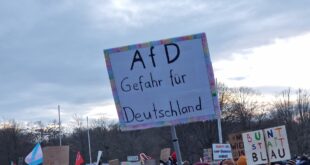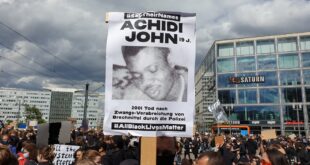Oury Jalloh, a Sierra Leonean refugee died under mysterious circumstances in a police cell in the city of Dessau on 7 January 2005.
According to police accounts, the then 21-year-old African was arrested after leaving a discotheque early in the morning of the fateful day. He had been reported by a street cleaner who felt intimidated when he asked to make a call with her mobile telephone.
Jalloh was taken to the Dessau police station and put in a basement cell to “sober up”, fixed to a mattress by his hands and feet. About midday, the fire alarm in the cell went off twice and cries for help were heard coming from the cell, which were all ignored by the policemen on duty. By the time a policeman finally went into the cell, Oury Jalloh had been burnt to death; he had supposedly set his fireproof mattress on fire with a cigarette lighter although his hands and feet were shackled to the bed.
These accounts of the police were vehemently rejected by human rights activists and African community groups. After numerous protest actions, the public prosecutor was forced to put the two policemen on duty on the fateful day to trial for culpability in the death of the African.

After a long drawn out court case in Dessau that ended in December 2008, charges against the two police officers on duty at the time of the death were dismissed. One officer had been accused of failing to respond immediately to an emergency alarm when the fire broke out in Jalloh’s cell. A second had allegedly failed to find a cigarette lighter when he searched Jalloh before putting him in the police cell.
The acquittal provoked a storm of protest and lawyers to the Jalloh family challenged the verdict in the Supreme Court, which ruled in 2010 that the public prosecutor and lawyers for the Jalloh family could now only bring charges against the first of the accused who was also head of the police shift on the day of the tragic incident.
The federal prosecutors declined to open a new investigation and referred the case back to state prosecutors in Halle, who declared the case closed on 12 October 2017 on the grounds that there was “not sufficient real evidence for the participation of a third party in the fire.
Petar Hadji-Ristic
READ ALSO Oury Jalloh: Group launches online petition for retrial
 THE AFRICAN COURIER. Reporting Africa and its Diaspora! The African Courier is an international magazine published in Germany to report on Africa and the Diaspora African experience. The first issue of the bimonthly magazine appeared on the newsstands on 15 February 1998. The African Courier is a communication forum for European-African political, economic and cultural exchanges, and a voice for Africa in Europe.
THE AFRICAN COURIER. Reporting Africa and its Diaspora! The African Courier is an international magazine published in Germany to report on Africa and the Diaspora African experience. The first issue of the bimonthly magazine appeared on the newsstands on 15 February 1998. The African Courier is a communication forum for European-African political, economic and cultural exchanges, and a voice for Africa in Europe.




































